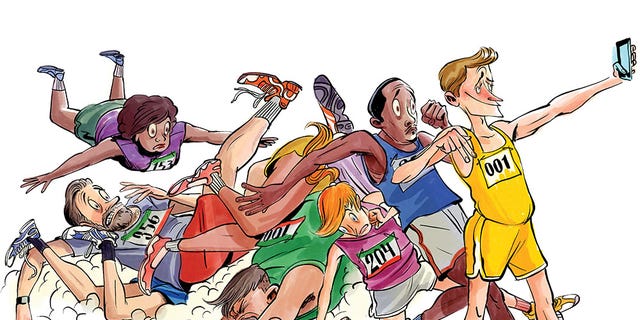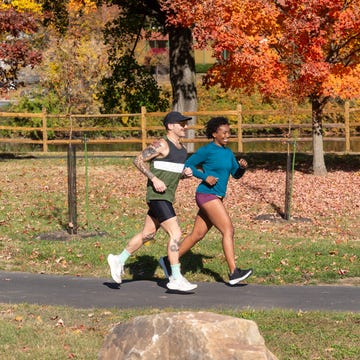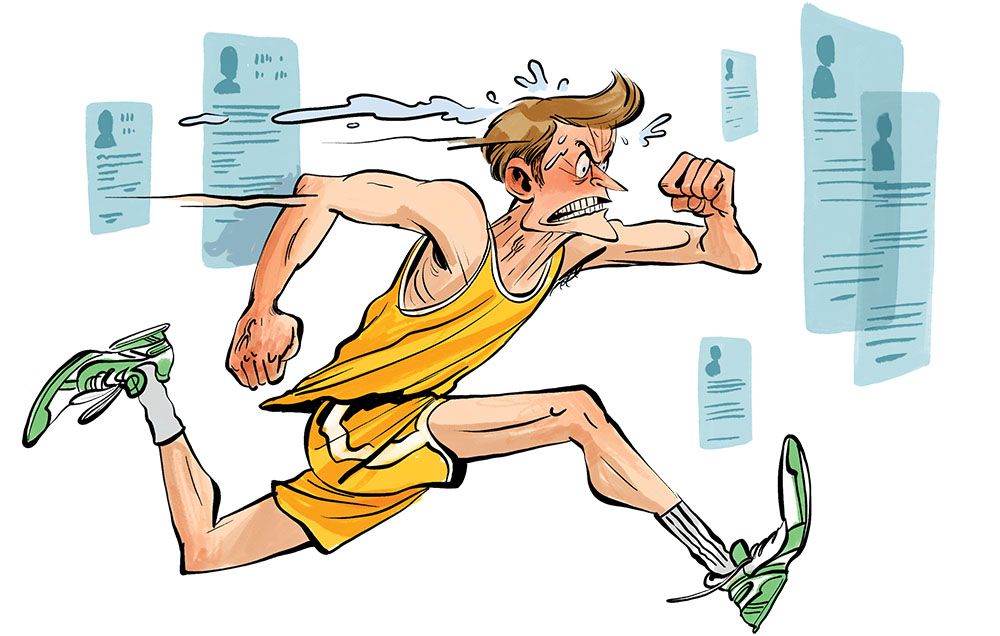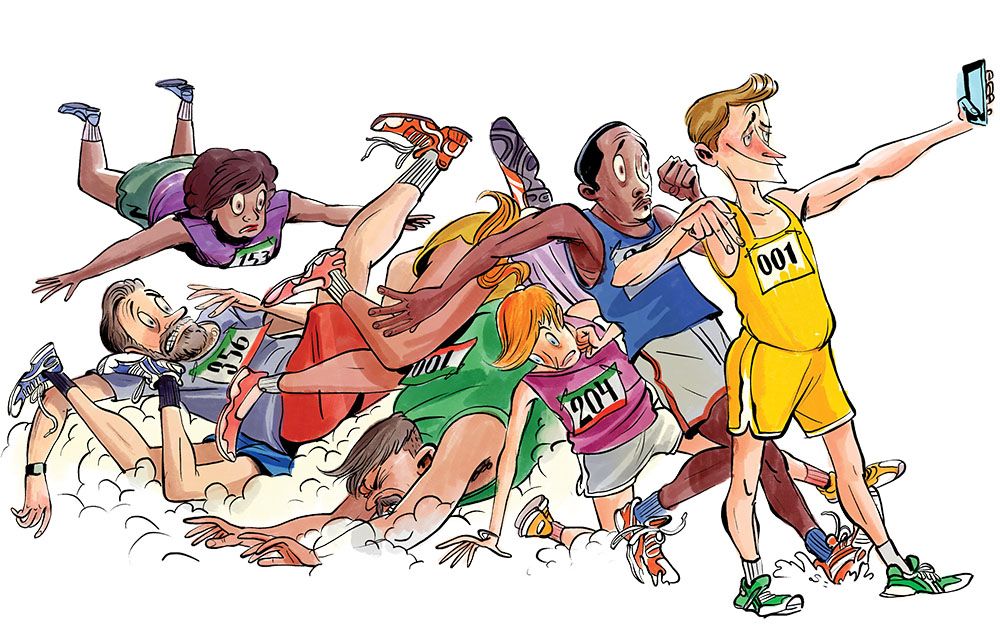Avoid These 4 Social Media Mistakes
Your phone can motivate, but it can also encourage habits that keep you from running your best.

False political headlines have fooled many in the social-media age, and “alternative facts” aren’t limited to partisan topics. Any blogger or influencer can post, tweet, or snap training advice that seems legit—but is it? “You can put out some really crappy information and get it perpetuated,” says Janet Hamilton, an Atlanta-based exercise physiologist and coach.
While inaccuracies spread more swiftly than ever, you can also use the internet to vet your sources. “Take that extra step and ask, ‘Okay, where’s this coming from?’” says Ryan Warrenburg, head coach for ZAP Fitness Coaching in North Carolina. “That’s easier than it’s been in the past, too.”
Being a discerning consumer of online running information can prevent plateaus, overtraining, and injuries. Here, established experts Hamilton and Warrenburg lay down the truth about four misguided, social-media-fueled training trends.

Cindy is a freelance health and fitness writer, author, and podcaster who’s contributed regularly to Runner’s World since 2013. She’s the coauthor of both Breakthrough Women’s Running: Dream Big and Train Smart and Rebound: Train Your Mind to Bounce Back Stronger from Sports Injuries, a book about the psychology of sports injury from Bloomsbury Sport. Cindy specializes in covering injury prevention and recovery, everyday athletes accomplishing extraordinary things, and the active community in her beloved Chicago, where winter forges deep bonds between those brave enough to train through it.

Readers Also Read

The Fatigue Resistance Tip Runners Often Overlook

How to Run Stronger in Your 40s

Make Long Runs Easier With 2 Simple Fixes

5 Run Coach Pet Peeves, and How You Can Fix Them










